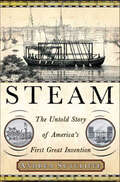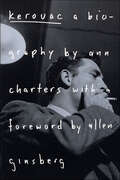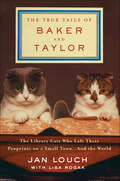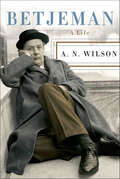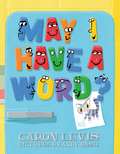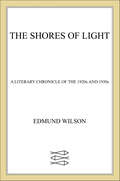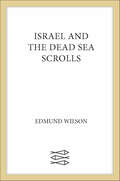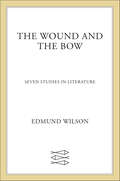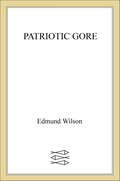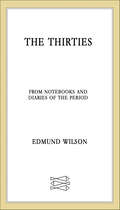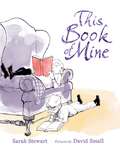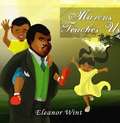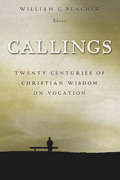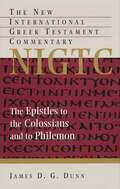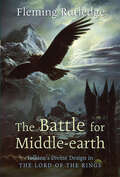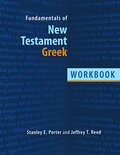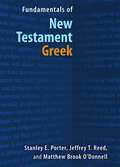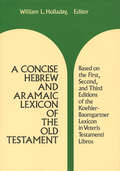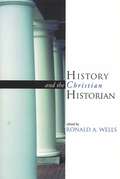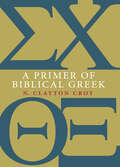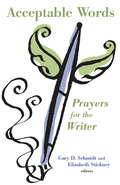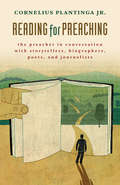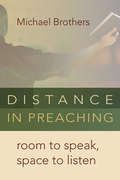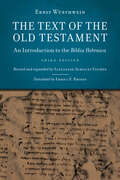- Table View
- List View
Steam: The Untold Story of America's First Great Invention
by Andrea SutcliffeIn 1807, Robert Fulton, using an English mail-order steam engine, chugged four miles an hour up the Hudson River, passing into popular folklore as the inventor of the steamboat. However, the true first passenger steamboat in America, and the world, was built from scratch, and plied the Delaware River in 1790, almost two decades earlier. Its inventor, John Fitch, never attained Fulton's riches, and was rewarded with ridicule and poverty. Considering there was not a single working steam engine in America in the early 1780s, Fitch's steamboat's development was nothing short of remarkable. But he faced competition from the start, and he and several other inventors fought a string of bitter battles, legal and otherwise. Steam tells the dramatic story of Fitch and his adversaries, weaving their lives into a fascinating tale including the likes of George Washington, Thomas Jefferson, and Benjamin Franklin. It is the story behind America's first important venture in technology, the persevering and colorful men that made it happen, and the great invention that moved a new nation westward.
Kerouac: A Biography
by Ann ChartersNow that Kerouac's major novel, On the Road is accepted as an American classic, academic critics are slowly beginning to catch up with his experimental literary methods and examine the dozen books comprising what he called 'the legend of Duluoz.' Nearly all of his books have been in print internationally since his death in 1969, and his writing has been discovered and enjoyed by new readers throughout the world. Kerouac's view of the promise of America, the seductive and lovely vision of the beckoning open spaces of our continent, has never been expressed better by subsequent writers, perhaps because Kerouac was our last writer to believe in America's promise--and essential innocence--as the legacy he would explore in his autobiographical fiction.
The True Tails of Baker and Taylor: The Library Cats Who Left Their Pawprints on a Small Town . . . And the World
by Lisa Rogak Jan Louch"Not since George Bailey in It's a Wonderful Life has someone so lifted the spirits of an entire community. That the 'someone' in this case is, in fact, two library cats makes this true tale of the love of literature combined with a fondness for nose licking all the more magical. This book, like a purring kitten who may also be a genie, should be welcomed into any home."—Francesco Marciuliano, New York Times bestselling author of I Could Pee on This: And Other Poems by Cats It all started with mice in the library. Assistant librarian Jan Louch and a coworker decided that what the library needed was a cat. Or, even better, two cats. Soon, they found a pair of Scottish Folds who were perfect for the job. Jan named them Baker and Taylor, and they took up residence in the library. But these cats were much more than mousers. Visitors to the library fell in love with Baker and Taylor and their antics just as Jan had. And then, after Jan let the cats be photographed for a poster, they became feline celebrities. Children from across the country wrote them letters, fans traveled from far and wide to meet them, and they became the most famous library cats in the world. In The True Tails of Baker and Taylor, Jan Louch looks back and tells the remarkable story of these two marvelous cats and the people—readers, librarians, and cat lovers of all ages—who came together around them.
Betjeman: A Life
by A. N. WilsonJohn Betjeman was by far the most popular poet of the twentieth century; his collected poems sold more than two million copies. As poet laureate of England, he became a national icon, but behind the public man were doubts and demons. The poet best known for writing hymns of praise to athletic middle-class girls on the tennis courts led a tempestuous emotional life. For much of his fifty-year marriage to Penelope Chetwode, the daughter of a field marshal, Betjeman had a relationship with Elizabeth Cavendish, the daughter of the Duke of Devonshire and lady-in-waiting to Princess Margaret. Betjeman, a devout Anglican, was tormented by guilt about the storms this emotional triangle caused.Betjeman, published to coincide with the hundredth anniversary of the poet's birth, is the first to use fully the vast archive of personal material relating to his private life, including literally hundreds of letters written by his wife about their life together and apart. Here too are chronicled his many friendships, ranging from "Bosie" Douglas to the young satirists of Private Eye, from the Mitford sisters to the Crazy Gang. This is a celebration of a much-loved poet, a brave campaigner for architecture at risk, and a highly popular public performer. Betjeman was the classic example of the melancholy clown, whose sadness found its perfect mood music in the hymns of a poignant Anglicanism.
The Odes of Horace: A Translation
by Horace David FerryDavid Ferry, the acclaimed poet and translator of Gilgamesh, has made an inspired translation of the complete Odes of Horace, one that conveys the wit, ardor and sublimity of the original with a music of all its own.The Latin poet Horace is, along with his friend Virgil, the most celebrated of the poets of the reign of the Emperor Augustus, and, with Virgil, the most influential. These marvelously constructed poems with their unswerving clarity of vision and their extraordinary range of tone and emotion have deeply affected the poetry of Shakespeare, Ben Jonson, Herbert, Dryden, Marvell, Pope, Samuel Johnson, Wordsworth, Frost, Larkin, Auden, and many others, in English and in other languages. This ebook edition includes only the English language translation of the Odes. As Rosanna Warren noted about Ferry's work in The Threepenny Review, "We finally have an English Horace whose rhythmical subtlety and variety do justice to the Latin poet's own inventiveness, in which emotion rises from the motion of the verse . . . To sense the achievement, one has to read the collection as a whole . . . and they can take one's breath away even as they continue breathing."
May I Have a Word?
by Caron LevisA battle of the magnet letters ensues across the refrigerator door in May I Have a Word? when C and K get into a fight about who gets to start the cooler (kooler?) words. When the two letters storm off in opposite directions, everything is turned upside down. SOCKS are now SO, there aren't any CLOCKS to TICK or TOCK, and the world is just out of LUCK--until other letters work to bring C and K back together again.
Shores of Light: A Literary Chronicle of the 1920s and 1930s
by Edmund WilsonA literary chronicle of the Twenties and Thirties from the brilliant mind of Edmund WilsonShores of Light covers a vast range of authors including Sherwood Anderson, Ring Lardner, Eugene O'Neill, e. e. cummings, Woodrow Wilson, H.L. Mencken, Ernest Hemingway, Gertrude Stein, Elinor Wylie, Edna St. Vincent Millay, Andre Malraux, Henry Miller, W.H. Auden, Nicola Sacco and Bartolomeo Vanzetti.
Israel and the Dead Sea Scrolls
by Edmund WilsonThe author of To the Finland Station and Axel's Castle brilliantly examines the significance of the scrolls' discovery and their role in Jewish history with this insightful biblical study, Israel and the Dead Sea Scrolls “Reading him, it is not difficult to imagine the ardor with which Edmund Wilson pursued his complex subject; it was the kind of subject he had always liked best, involving as it did history, politics, ancient lore, and all his faculties for imaginative reconstruction and historical analysis … No book quite like this has been written in our century.” —Leon Edel, from the introduction.
The Wound and the Bow: Seven Studies in Literature (Library Of America Edmund Wilson Edition Ser.)
by Edmund WilsonIn this classic work, “the greatest literary critic of the 20th century” probes the lives and works of seven great writers (New York Magazine).Combining biographical and critical sketches, Edmund Wilson searches for the wellspring of artistic genius in this series of seven essays. His wide-ranging subjects include Charles Dickens, Rudyard Kipling, Edith Wharton, Ernest Hemingway, James Joyce, Jacques Casanova, and Sophocles.The first two studies, of Charles Dickens and Rudyard Kipling, reveal how in each case an unhappy childhood later resulted in mature artistic works. Expanding on this theme in succeeding chapters, Wilson captures the essence of his thesis in the mythical story of Philoctetes, as recounted in the final essay.The legendary Greek archer was bitten by snake and then afflicted with an incurable, malodorous wound that would not heal. After first being banished, the injured hero was later sought out by his fellow warriors for his prowess with a magic bow, and his skill was ultimately key to the Greek victory at Troy.“In the best tradition of literary criticism . . . combines exact information with shrewd and searching penetration into the personal life of the artist.” —The New York Times
Patriotic Gore: Studies In The Literature Of The American Civil War
by Edmund WilsonThe classic study of literature from the Civil War, featuring critical profiles of notable figures who captured its grim reality and profound meaning.In his introduction to Patriotic Gore, Edmund Wilson asks, “Has there ever been another historical crisis of the magnitude of 1861–1865 in which so many people were so articulate?” Regarded by many as Wilson’s greatest book, Patriotic Gore more than proves the point, brilliantly portraying the vast political, spiritual, and material crisis of the Civil War as reflected in the lives and writings of some thirty representative Americans.Figures discussed include Harriet Beecher Stowe, Abraham Lincoln, Ulysses S. Grant, William Tecumseh Sherman, and Oliver Wendell Holmes, among many others.
The Thirties: From Notebooks and Diaries of the Period (Edmund Wilson's Notebooks and Diaries)
by Edmund WilsonFrom one of America's greatest literary critics comes Edmund Wilson's insightful and candid record of the 1930's, The Thirties: From Notebooks and Diaries of the Period.Here, continuing from Wilson's previous journal, The Twenties, the narrator moves from the youthful concerns of the Jazz Age to his more substantial middle years, exploring the decade's plunge from affluence and exploring the tenets of Communism. His personal life is also amply represented, from his marriage to Margaret Canby and her subsequent tragic death to various erotic episodes with unidentified women.
This Book of Mine: A Picture Book
by Sarah StewartA dazzling depiction of the connection between diverse readers of all ages and their books, from beloved author-illustrator team Sarah Stewart and David Small. This Book of Mine is a celebration of the power of reading, of the ways in which books launch our adventures, give us comfort, challenge our imaginations, and offer us connection. From new mothers to fantasy lovers, butterfly hunters to musicians, the readers of This Book of Mine all share a common passion for favorite books—whether freshly discovered at the library or bookstore or saved from childhood and reread across a lifetime. A unique gift for bibliophiles young and old, This Book of Mine trumpets a simple truth: A well-loved book in hand brings color to any reader’s life.
Marcus Teaches Us
by Eleanor Wint<p>Marcus Teaches Us is the first and only book of its kind. It portrays the teachings of The Hon. Marcus Mosiah Garvey in language and pictures that all kids will love. It is bright with innovative colouring activities, uses simple language and gives children the opportunity to practice cursive writing. Marcus Garvey is a monumental, internationally acclaimed Black philosopher who has influenced the independence movement of every black nation in the world. Children worldwide should each have their own copy as they deserve to have the knowledge captured in this attractive book on Marcus Garvey.</p> <P><P><i>Advisory: Bookshare has learned that this book offers only partial accessibility. We have kept it in the collection because it is useful for some of our members. To explore further access options with us, please contact us through the Book Quality link. Benetech is actively working on projects to improve accessibility issues such as these.</i>
Callings: Twenty Centuries of Christian Wisdom on Vocation
by William C. PlacherWhat am I going to do with my life? is a question that young people commonly face, while many not-so-young people continue to wonder about finding direction and purpose in their lives. Whether such purpose has to do with what job to take, whether to get married, or how to incorporate religious faith into the texture of their lives, Christians down the centuries have believed that God has plans for them. This unprecedented anthology gathers select passages on work and vocation from the greatest writers in Christian history. William Placher has written insightful introductions to accompany the selections — an introduction to each of the four main historical sections and a brief introduction to each reading. While the vocational questions faced by Christians have changed through the centuries, this book demonstrates how the distilled wisdom of these saints, preachers, theologians, and teachers remains relevant to Christians today. This rich resource is to be followed by a companion volume, edited by Mark R. Schwehn and Dorothy C. Bass, featuring texts drawn mainly from fiction, memoir, poetry, and other forms of literature. A study guide is available from Programs for the Theological Exploration of Vocation (PTEV) on their website: www.ptev.org
The Epistles to the Colossians and to Philemon (The New International Greek Testament Commentary)
by James D. DunnPaul's Epistle to the Colossians merits detailed study for at least two reasons. First, it provides an unexpectedly interesting window into the character of Christianity in Asia Minor in the second half of the first century. With the information it gives about the religious tensions within which emergent Christianity was caught up, not least those between Christianity and diaspora Judaism, we begin to gain more insight into the influences and factors that shaped the transition from apostolic to subapostolic Christianity in the region. Second, Colossians represents a crucial stage in the development of Pauline theology itself. Whether it was written at the end of Paul's life or soon after his death, it indicates how Pauline theology retained its own vital character and did not die with Paul.In this volume in the celebrated New International Greek Testament Commentary, James D. G. Dunn, author of numerous well-received works on the historical origin and theological interpretation of the New Testament, provides detailed expositions of the text of Paul's letters to the Colossians and to Philemon.Dunn examines each of these letters within the context of the Jewish and Hellenistic cultures in the first century, and discusses the place of Colossians and Philemon in the relationship between the Pauline mission and the early churches that received these letters. Particular stress is also placed on the role of faith in Jesus Christ within and over against Judaism and on the counsel of these two important letters with regard to the shaping of human relationships in the community of faith.
The Battle for Middle-earth: Tolkien's Divine Design in The Lord of the Rings
by Fleming RutledgeJ. R. R. Tolkien's Lord of the Rings has long been acknowledged as the gold standard for fantasy fiction, and the recent Oscar-winning movie trilogy has brought forth a whole new generation of fans. Many Tolkien enthusiasts, however, are not aware of the profoundly religious dimension of the great Ring saga. In The Battle for Middle-earth Fleming Rutledge employs a distinctive technique to uncover the theological currents that lie just under the surface of Tolkien's epic tale. Rutledge believes that the best way to understand this powerful "deep narrative" is to examine the story as it unfolds, preserving some of its original dramatic tension. This deep narrative has not previously been sufficiently analyzed or celebrated. Writing as an enthusiastic but careful reader, Rutledge draws on Tolkien's extensive correspondence to show how biblical and liturgical motifs shape the action. At the heart of the plot lies a rare glimpse of what human freedom really means within the Divine Plan of God. The Battle for Middle-earth surely will, as Rutledge hopes, "give pleasure to those who may already have detected the presence of the sub-narrative, and insight to those who may have missed it on first reading."
Fundamentals of New Testament Greek: Workbook
by Stanley E. Porter Jeffrey T. ReedThis extremely useful volume is a comprehensive introduction to the grammar and vocabulary of the Greek of the New Testament, with extensive paradigms, examples, and explanations. / Porter, Reed, and O’Donnell’s Fundamentals of New Testament Greek makes use of pedagogically sound and linguistically informed language-instruction techniques to provide the most effective textbook possible. The book introduces the individual elements of the Greek language according to their frequency of use in the New Testament so as to reinforce in students the elements that they will most often encounter. Every grammatical element is explained in sufficient detail — including illustrative examples — and is accompanied by useful information to describe its composition and analysis. The authors also include complete paradigms with plenty of examples, and significant vocabulary is introduced throughout the course of the volume. / Students who complete this text can engage in serious reading, translation, and understanding of the Greek New Testament, moving directly into Greek exegesis courses and more advanced Greek-language courses. Fundamentals of New Testament Greek: First Year will prove invaluable for gaining a thorough foundational understanding of New Testament Greek. It is bound to be a standard text for years to come.
Fundamentals of New Testament Greek
by Stanley E. Porter Jeffrey T. Reed Matthew Brook O'DonnellThis extremely useful volume is a comprehensive introduction to the grammar and vocabulary of the Greek of the New Testament, with extensive paradigms, examples, and explanations. / Porter, Reed, and O’Donnell’s Fundamentals of New Testament Greek makes use of pedagogically sound and linguistically informed language-instruction techniques to provide the most effective textbook possible. The book introduces the individual elements of the Greek language according to their frequency of use in the New Testament so as to reinforce in students the elements that they will most often encounter. Every grammatical element is explained in sufficient detail — including illustrative examples — and is accompanied by useful information to describe its composition and analysis. The authors also include complete paradigms with plenty of examples, and significant vocabulary is introduced throughout the course of the volume. / Students who complete this text can engage in serious reading, translation, and understanding of the Greek New Testament, moving directly into Greek exegesis courses and more advanced Greek-language courses. Fundamentals of New Testament Greek: First Year will prove invaluable for gaining a thorough foundational understanding of New Testament Greek. It is bound to be a standard text for years to come.
A Concise Hebrew and Aramaic Lexicon of the Old Testament
by William L. HolladayBased on the First, Second, and Third Editions of the Koehler-Baumgartner Lexicon in Veteris Testamenti Libros, this abridgment--which eliminates bibliographical references and technical information intended for specialists and judiciously trims biblical citations--provides everything the student needs to translate an Old Testament passage.
History and the Christian Historian
by Ronald A. WellsThis volume arises out of special concerns of historians who are also Christians. What case can be made for connecting historical work and religious convictions? What is the relation of faith to history? What difference could Christian perspectives make in historical study? Thirteen respected scholars — including some who have changed the face of history writing in the twentieth century — here take up a diversity of subjects in giving a provisional answer to these important questions. In exploring foundational issues of perspective and theory, engaging discrete themes such as feminism, puritanism, and missiology, and discussing the application of religious insights in teaching history, this excellent collection of essays forthrightly addresses the &“epistemological crisis&” brought on by the postmodern critique of truth and demonstrates the positive implications of a Christian perspective for the study of history and historiography.
A Primer of Biblical Greek (Eerdmans Language Resources (ELR))
by N. Clayton CroyThough there are currently a number of texts for teaching biblical Greek, most of them are plagued by various deficiencies. Written with these flaws in mind, this new primer by N. Clayton Croy offers an effective, single-volume introduction to biblical Greek that has proven successful in classrooms around the country.This volume takes a primarily deductive approach to teaching biblical Greek and assumes that students have no prior knowledge of the language. Divided into 32 separate lessons, each containing a generous number of exercises, the text leads students from the Greek alphabet to a working understanding of the language of the Septuagint and the New Testament.Special features of A Primer of Biblical Greek:An abundance of exercisesEach lesson includes practice sentences taken from the Septuagint and the New Testament as well as Greek sentences composed by the author. Exercises in English-to-Greek translation are also included.Concise but accurate grammatical explanationsGreat care has been taken to insure that grammatical explanations are clear, correct, and succinct. In particular, the Greek participle receives a fuller-than-usual treatment.A natural order of presentationMaterial is presented according to the natural structure of Greek and the traditional terminology of grammarians. Declensions and principal parts, for example, are presented in numerical order.Inclusive languageThe book uses inclusive language for human beings throughout.Helpful appendixes for quick referenceIncluded at the back of the book are the Greek paradigms, Greek-to-English vocabulary, English-to-Greek vocabulary, and a bibliography for further study.
Acceptable Words: Prayers for the Writer
by Gary Schmidt Elizabeth StickneyAcceptable Words offers prayers that correspond with each stage of the writer's work -- from finding inspiration to penning the first words to "offering it to God" at completion. Gary Schmidt and Elizabeth Stickney, experienced writers themselves, introduce each chapter of prayers with pithy pastoral reflections that will encourage writers in their craft.This welcome spiritual resource for writers includes both ancient and contemporary poems and prayers -- some of which were written especially for this volume. A thoughtful gift for any writer, Acceptable Words will accompany writers on their spiritual journey, lending words of praise and petition specifically crafted to suit their unique vocation.Watch the trailer:
Reading for Preaching: The Preacher in Conversation with Storytellers, Biographers, Poets, and Journalists
by Cornelius Plantinga Jr.In Reading for Preaching Cornelius Plantinga makes a striking claim: preachers who read widely will most likely become better preachers.Plantinga -- himself a master preacher -- shows how a wide reading program can benefit preachers. First, he says, good reading generates delight, and the preacher who enters the world of delight goes with God. Good reading can also help tune the preacher’s ear for language -- his or her primary tool. General reading can enlarge the preacher’s sympathies for people and situations that she or he had previously known nothing about. And, above all, the preacher who reads widely has the chance to become wise.This beautifully written book will benefit not just preachers but anyone interested in the wisdom to be derived from reading.Works that Plantinga interacts with in the book includeThe Kite Runner, by Khaled HosseiniEnrique's Journey, by Sonia NazarioSilence, by Shusaku Endo"How Much Land Does a Man Need?" by Leo Tolstoy"Narcissus Leaves the Pool" by Joseph EpsteinLes Miserables, by Victor Hugo. . . and many more!
Distance in Preaching: Room to Speak, Space to Listen
by Michael BrothersBased on several years of teaching and careful observation in preaching classes, this book by Michael Brothers explores the benefits of "distance" in preaching -- and listening to -- sermons.Having noticed that sermon listeners generally want to be given room for their own interpretations and experiences, Brothers argues that critical and aesthetic distance as a hermeneutical tool is vital to hearing the gospel today and should be intentionally employed in sermon construction and delivery. He explains this "distance" in the field of homiletics, equips teachers and students of preaching to evaluate the function of distance in sermons, and encourages preachers to practice the use of distance in their preaching.
The Text of the Old Testament: An Introduction to the Biblia Hebraica
by Ernst Wurthwein Alexander Achilles FischerKristin De Troyer — University of St. Andrews &“This finely revised and nicely updated version of one of the classics in our field can truly be called a grand introduction to the history of the biblical text.&”Leonard Greenspoon — Creighton University &“Readers familiar with Würthwein&’s earlier work will discover all of the strengths of his approach to Biblical Hebrew. Old and new readers will enjoy the thoroughly up-to-date discussion of the aims and methods of textual criticism as well as the unbiased analysis of ancient versions and their modern scholarly editions. Beautifully reproduced plates are easy to read, and the updated bibliography is satisfyingly full. . . . This successful project can be easily digested by newcomers and savored by specialists.&”Robert L. Hubbard — North Park Theological Seminary &“A very welcome, thorough revision of the long-honored standard introduction to the Masoretic text. Its integration of recent scholarship is first-rate, and the rewritten text retains the clear, accessible style that won its predecessors decades of popularity as a textbook. Yet another generation of students will find in this book a friendly, reliable guide through the complex terrain of ancient Hebrew texts and their relationships. Highly commended.&”The Bible Today &“Every scholar and serious Bible student should have a passing knowledge of the work of the text critic. This book will provide such knowledge.&”Books at a Glance "An important, up-to-date resource that will benefit everyone interested in Old Testament Textual criticism. The excellent bibliography, diagrams, and plates are unique contributions among introductory works in the field. Highly recommended."
